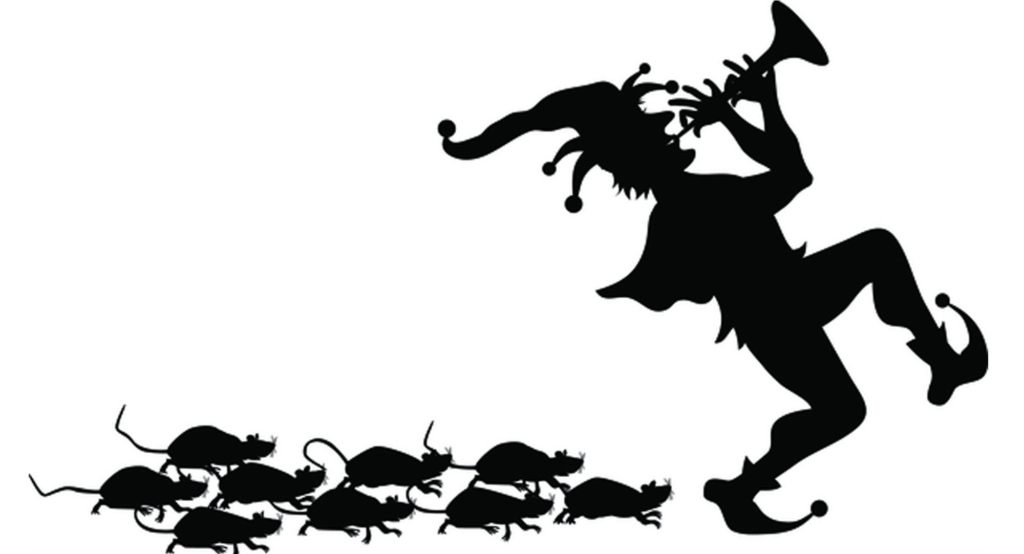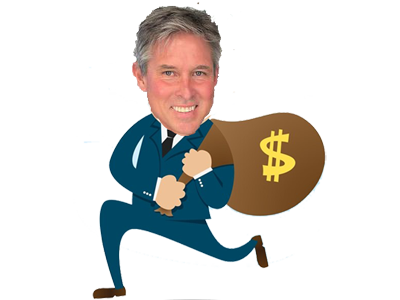
Whew. Where do I start? I’d been through years of court appearances. I’d turned down several requests for interviews from newpaper or TV journalists. I just wanted to put my time with this company behind me. I had appeared as a witness in court as late as December, 2018 – more than 10 years after the company was taken over. I was ready for it to be over. After a couple of years, I thought it was. And then I got a text message.

The first text message was “Did you see that Brent came out with a book?” It was ironic. Just a couple of months earlier I was joking with a friend who also used to work at the company. We’d heard that Brent’s father, Doug Cassity, had passed away shortly after being released from prison. My friend said, “Watch, now Brent will go on TV and just blame his dad for everything.” Little did we know.
I still didn’t care. I no longer had any ill-feelings toward Brent Cassity. He got caught up in the family business and did some things – okay, a lot of things – he shouldn’t have and went to federal prison in Leavenworth. And besides, Brent had paid his price and was out of prison and it looked like he was just trying to start a new life. More power to him. I was, however, interested enough that I ordered the book.
In my opinion, Brent’s troubles got started because he worshipped his dad so much. His father, Doug Cassity, had already spent some time in federal prison many years before and, as it turns out, was willing to do anything to keep the Ponzi alive. He was extremely charismatic. My friends and I have joked over the years that Doug was a real-life Pied Piper. He got a lot of people to follow and trust him, even me for a long while, with his witty talk and patholigical optimism.
The book came in a couple of days later.
By the next morning, I’d finished the book and had made up my mind to contribute to this website. It was no longer about clearing my name, the elementary-level jabs Brent directed at me were easy to disprove anyway, it was about telling the real story. I didn’t feel as though Brent’s book gave anything close to the real story. I was also shocked at how he described himself as successful on the cover of his book. Successful at what? This enterprise, with one noteable exception (the cemetery his brother ran,) was riddled with fraud. It was like listening to his dad in 2007 all over again. Brent had said his dad betrayed him in the book, but he was clearly still willing to push his dad’s narratives to profess his innocence. I thought, what a shame, Brent could have come out with a book that would have people knocking down his door to make into a movie. It’s an unbelieveable story! And, Brent certainly was good at telling a story. All he had to do was accept some responsibility for what happened and tell the real story. However, he only mustered up the ability to admit the occasional “oversight” or mistake.
Policy loans, Hannover, PLICA, the white-outs, Brent Cassity’s book was filled with lies, misinformation and/or left out crucial facts thoughout – all in an effort to portray himself as an innocent CEO who just had no clue. Most of us agree he had no clue, but he certainly wasn’t innocent by any measure.
It would take an entire book to tell the whole story and I’ve only got one webpage. So, I better get to addressing the points in the book where Brent mentions me. My name comes up in a few spots; below are the pertinent ones.
Chapter 30: 2007 – The Beginning of a Nightmare
Page 113: “Dad currently had two men in charge that I did not know very well. Cliff [sic] Mitchell seemed smart but was selfishly power hungry. Tony Lumpkin, our chief operations officer, was an odd man, a former marine [sic] standing no taller than 5’5″. When I saw him, I got a strange vibe from him, and the gossip was that he socialized and was close friends with NPS’s arch nemesis, Mike McCoy, former president of NPS Marketing.”
Chapter 31: The Thunder of the Crisis
Page 118: “I was having a meeting with Dad in his office, when Kati knocked on the door and came in. When Katie [sic] was nervous or stress, hives would break out on her neck. She had hives.
‘We have a problem with our Ohio paperwork,’ she said.
I knew that all of our contracts and forms were approved by each state we operate. How could we have a paperwork problem?
She explained that where had been a white out problem on our policies.
‘What?’ I said.
It appeared to be laziness in the department that was managed by Tony Lumpkin.”
Chapter 35: Death by Perception
Page134-135: “When Emma Fulton received the $4 million wire, she contacted Hector and accused us of not sending personal family funds. She said we would need to prove the funds were personal. Someone in our office had made the accusation to her. We later discovered that Tony Lumpkin, Chief Operating Officer with Lincoln, had been consistently giving bogus information to the department to specifically hurt us. Tony had secretly teamed up with Mike McCoy with a company called Texas Memorial Life. They believed if they could run our company out of business, they would then be the recipient of the windfall of our company’s business in Texas.”
Let’s examine the facts around the above statements.
First, I had resigned from the Company a 2-3 years before this time period – sometime in 2005. Obviously, I was no longer Chief Operations Officer. I was still there a few hours a week and also was contstantly answering emails as an independent consultant at their request. Brent was clearly just trying to get some jabs in on me because of my efforts to help the regulators and my later testimony against him. Here, in a March, 2006 Quarterly Statement for Lincoln Memorial Life you can see I was no longer with the Company. I can’t remember when exactly in 2005 I resigned, but my name wasn’t on the year-end 2005 statement either.
According to his own book, all of these statements made by Brent refer to periods from May 2007 and later. I wasn’t managing a department as a part-time consultant either. Brent seems to also be attempting to portray the “white-outs” issue as a clerical error in the insurance company’s office in Austin, Texas. In fact, it was a massive part of the fraud and was systematically done to thousands and thousands of policy applications by mid 2007. I would assume, since a major part of the criminal charges centered around this issue, that Brent just might remember it.
I won’t call him a liar about the comment regarding me being “odd” as I’m sure he thought so! I was no longer one of the Pied Piper’s rats. I had moved on and he didn’t like it.
It was also no secret that I had gone to work for a competitor. There was even a press release about it. It is a relatively tiny industry and everybody hears everything. It wasn’t something I was trying very hard to hide. At least a dozen people at Lincoln Memorial knew it. I just didn’t bother to tell Brent or anyone else whom I knew would feel a duty or obligation to tell him. It was none of his business and we all knew how Brent would react if he knew.
And, finally, Brent is also incorrect about my motivation to work for another company and run the Cassity conglomerate out of business. We knew there would, and indeed there was, a huge fallout from the Cassity Companies going under. It damaged the industry as a whole and I only worked in the field another year or so before moving on to a CFO position with a tech company in Austin.
I’m sure the other comments in the book about “the mole” refer to me as well although I’m aware of at least five other individuals who helped regulators uncover the facts before the Company was shut down. Even a couple of Brent’s prized Senior Advantage Reps, fed up with the lies from the corporate office in St. Louis, had helped.
I was giving the regulators accurate infomation. Brent seems to think that telling regulators the truth is “giving them bogus information.” I never gave any regulator anything but the facts. Anything else would have resulted in criminal charges. But, I guess Brent knows how that works….
